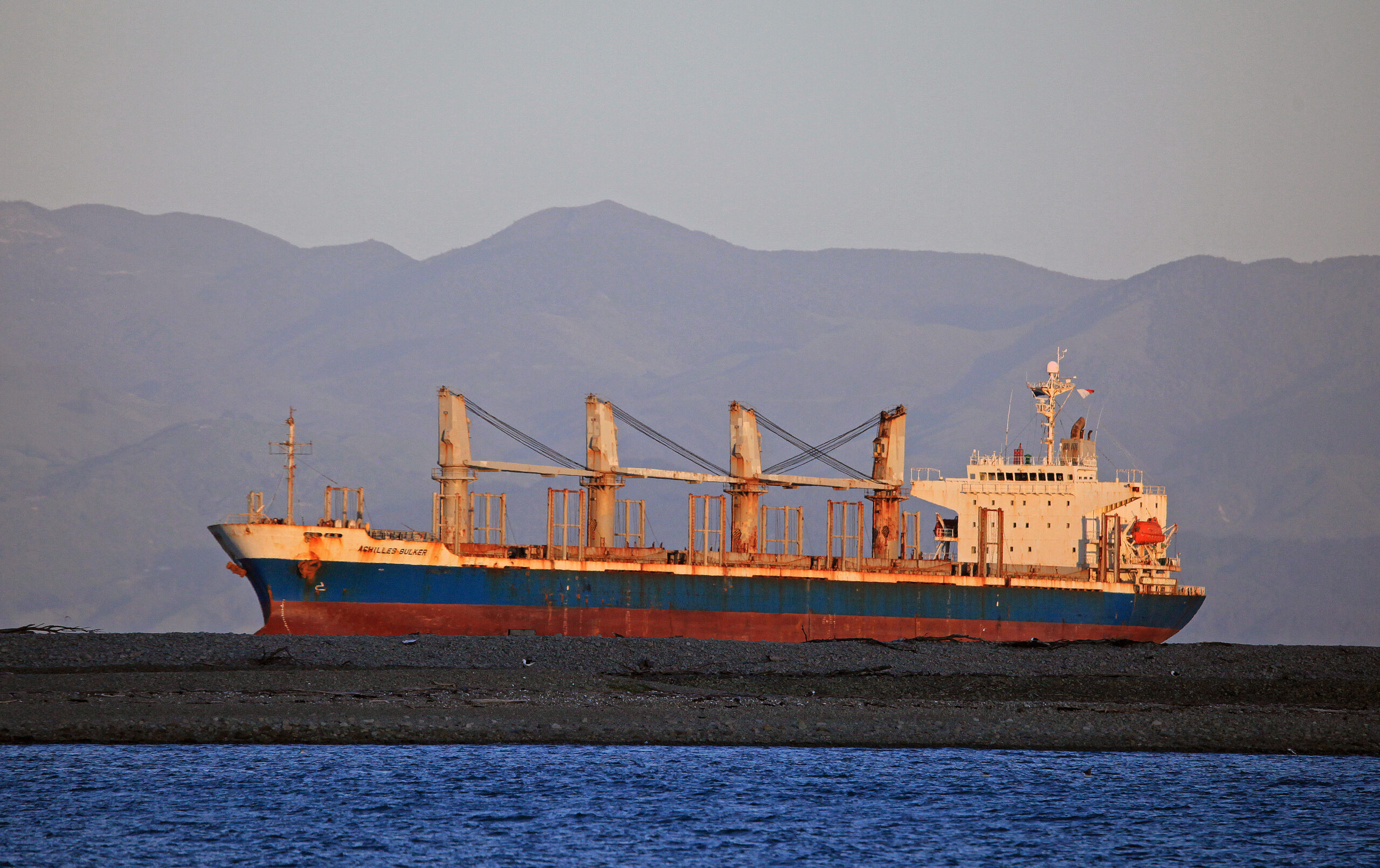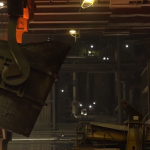
Critical Maintenance Missteps: A Close Look at the Achilles Bulker Incident
The recent incident involving the Achilles Bulker—a fully loaded bulk carrier that almost met disaster near New Zealand’s Port of Tauranga—provides a stark reminder of how one seemingly minor oversight in maintenance procedures can have far-reaching and dangerous consequences. In this op-ed, we aim to take a closer look at the event, examine the tricky parts that contributed to the mishap, and consider what the maritime world—and indeed multiple related industrial sectors—can learn from this alarming series of maintenance errors.
On July 24, 2023, when the Achilles Bulker was leaving port, it encountered a critical failure that saw its rudder completely snap off. With ships heavily dependent on rudders for directional control, the loss of this key component in pilotage waters near Tauranga put the vessel in jeopardy of grounding in shallow water. The immediate actions by the crew, who rapidly deployed both anchors, were invaluable in averting a full-blown disaster.
Understanding the Nitty-Gritty of the Incident
Investigations led by the Transport Accident Investigation Commission (TAIC) revealed that the mishap was not a random act of fate. Instead, it was a product of improper maintenance procedures dating back to a dry dock event in 2021. Specifically, during routine upkeep, the rudder pintle assembly—essentially a heavy hinge pin that supports and allows the rudder to turn—was removed and later reinstalled incorrectly. This misstep caused the pintle to become unsupported, ultimately leading it to disengage and fall out of place even before a total failure could occur.
TAIC’s report brought to light several confusing bits regarding the vessel’s maintenance, noting that once the pintle started to drift, excessive movement in the rudder system compounded the issue. As the rudder began to oscillate with little to no support, it eventually suffered from fatigue cracks that caused it to detach entirely. The investigation underscored how a simple, yet overlooked, error during maintenance could set off a chain reaction with potentially devastating consequences.
Deep Dive into Maintenance Procedures and Quality Assurance
This incident pushes us to reexamine quality assurance processes not only in the maritime world but also in broader industrial sectors where maintenance and repair are key. Within the shipping industry, maintenance is routinely seen as a chore, often timed for convenience or short-term cost-saving benefits rather than long-term operational integrity. The Achilles Bulker case is a cautionary tale that highlights how even routine maintenance practices can hide tricky parts that pose significant risks if not performed with precision.
Key issues emerging from the investigation include:
- Improper reinstallation of crucial components such as the rudder pintle
- Lapses in the quality assurance procedures at shipyards
- The need for standardized global guidelines on rudder maintenance and installation
- Insufficient attention to the hidden complexities during routine dry dock operations
By understanding these factors, industry professionals are better positioned to look into their own maintenance protocols and address similar vulnerable points before they escalate into larger, more intimidating problems.
Lessons for Global Maritime Safety and Beyond
While the Achilles Bulker incident is a maritime issue at its core, the fine points it raises have broader implications in multiple fields, including industrial manufacturing and even the automotive and electric vehicle sectors. Many industries depend heavily on maintenance, quality control, and regulatory oversight—elements that must work in sync to prevent dangerous incidents. Just as a misaligned pintle can lead to rudder failure on a ship, small oversights in automotive engineering or industrial manufacturing can result in equally nerve-racking consequences.
In the world of manufacturing, for example, a similar kind of situation could occur if a critical assembly process is rushed or omitted altogether. Whether it’s an automotive component or a high-voltage battery cell for electric vehicles, the same careful attention is needed to ensure that every small twist or turn is managed properly. In both cases, the repercussions can be severe, leading to costly recalls, potential safety hazards, and loss of consumer confidence.
This cross-industry relevance is why recommendations stemming from the TAIC investigation are so important. TAIC has formally called for:
- Implementation of robust quality assurance procedures specifically for rudder pintle installation in shipyards
- Collaboration between Maritime NZ and the International Maritime Organisation to promote enhanced global standards for quality assurance during installation, maintenance, and repair of rudder systems
Emphasizing these measures not only aids in preventing similar incidents in the maritime sector but also sets an important precedent for quality control in any industry reliant on the safe functioning of critical components.
Economic Implications and the Ripple Effect on Global Supply Chains
An episode like this does not occur in a vacuum. In an interconnected global economy, a ripple effect can quickly spread out, impacting various sectors. The failure of such a major shipping vessel could have a cascading impact on the supply chain, leading to delays and increased costs, thereby affecting everything from small businesses to large-scale industrial operations.
Key considerations include:
- Inventory Disruptions: When ships carrying bulk goods come to a halt, downstream supply chains experience delays. This places strain on businesses that rely on a steady influx of raw materials.
- Increased Costs: Insurance claims related to such accidents can lead to higher premiums for shipping companies. These costs may eventually trickle down to consumers and businesses.
- Reputational Damage: Both for the company managing the vessel and the shipyards involved in maintenance. A damaged reputation can lead to lost contracts and a decline in investor confidence, affecting broader economic perspectives.
In essence, the Achilles Bulker incident serves as a case study in how a single failure at the micro level can lead to significant economic disturbances, providing a valuable lesson in the importance of maintaining a vigilant approach to quality checks and maintenance in every industry.
Ensuring Safety in High-Stakes Environments: The Role of Technology
As industries evolve and technology becomes an integral part of operational safety, new tools and methodologies are emerging to help tackle these tricky parts of maintenance and safety oversight. In the maritime sphere, sensors, real-time monitoring systems, and advanced diagnostics can all help detect early signs of mechanical degradation. However, the Achilles Bulker’s incident shows that even the best technology cannot substitute for carefully executed processes and human diligence.
Technology serves as a complementary force rather than a standalone solution. For example, periodic sensor data on rudder movement could signal abnormal behavior before a complete failure happens. Yet, without robust quality assurance protocols and human oversight to interpret the data correctly, these digital alerts may be ignored or misunderstood, leading to the very accidents they are designed to prevent.
Integrating Advanced Monitoring with Traditional Maintenance
The following table illustrates how maritime operations can merge traditional maintenance practices with cutting-edge technology to improve overall safety:
| Traditional Maintenance | Advanced Monitoring | Combined Benefit |
|---|---|---|
| Regular inspection checklists | Real-time sensor data on component performance | Early identification of small distinctions that might indicate major issues |
| Manual quality assurance processes | Automated diagnostics and alerts | Enhanced predictive maintenance to avert breakdowns |
| Periodic dry dock reviews | Continuous health monitoring systems | Improved long-term durability planning |
In the same vein, industries such as automotive manufacturing and electric vehicle production stand to benefit by integrating digital monitoring into their quality assurance processes. The principle remains: technology is a must-have tool that should work hand in hand with traditional upkeep methods to ensure safety and efficiency.
Impact on Regulatory Frameworks and Policy Making
Issues like the Achilles Bulker’s rudder failure prompt policymakers to rethink and potentially restructure existing maritime safety and maintenance regulations. Similar to trends seen in the automotive and industrial sectors, regulatory bodies are finding themselves having to grapple with ensuring that quality standards are uniformly enforced across global operations.
Policymakers are now faced with a pivotal question: How can they tighten quality control standards without imposing overwhelming, off-putting regulations that could stifle innovation or increase operating costs for shipping companies and shipyards?
Important strategic directions include:
- Developing comprehensive global guidelines: These should focus on the secure and correct installation of critical components during maintenance. The goal is to streamline best practices that shipyards around the world can adopt.
- Collaborative oversight: Agencies such as Maritime NZ and international organizations like the International Maritime Organisation (IMO) must work more closely with industry stakeholders to develop guidelines that consider the fine shades of risk involved in maintenance processes.
- Regular audits: Implementing routine audits and certifications for both shipyards and shipping companies can help ensure adherence to established protocols. This not only improves overall safety but also boosts industry credibility.
Essentially, these policy considerations are not isolated to maritime law. They reflect a broader movement toward higher standards in maintenance, quality control, and safety that is resonating across several sectors like industrial manufacturing and even small business operations that depend on efficient logistical networks.
A Closer Look at the Human Element and Training
While the Achilles Bulker’s incident highlights procedural failures, it also underscores the importance of human oversight during unpredictable situations. Pilots and onboard crews were thrust into a nerve-wracking scenario that required swift decision-making and proficient crisis management. Their actions were instrumental in averting a catastrophic grounding.
In high-stress environments, the human element becomes crucial, and training must extend beyond just technical know-how. Crew members need to be prepared to:
- Quickly assess abnormal conditions and execute emergency protocols
- Understand the subtle details of vessel maintenance procedures that could impact navigational safety
- Communicate effectively with technical teams to resolve issues before they escalate
Training programs should be enhanced to incorporate realistic simulations that expose crews to potential failure modes. This kind of preparedness is not only essential in maritime operations but should also serve as an example for other industries confronting similar challenges. For instance, in the automotive industry, emergency response training for factory floor workers can prevent or mitigate costly machinery failures.
Broader Implications for Small Businesses and Industry Stakeholders
The ripple effects of safety incidents like these extend far beyond the realm of maritime operations. Small businesses that rely on timely and safe deliveries of raw materials or finished products are particularly vulnerable to supply chain disruptions. Simply put, a single maintenance error on a bulk carrier can have trickled-down impacts on a host of industries.
Here are some points illustrating the wider business implications:
- Supply Chain Stability: Even minor delays in shipping can lead to a slowdown in production processes, especially for small to medium enterprises (SMEs) that operate on lean inventories.
- Cost Pressures: Increased shipping costs due to rerouting, delays, or higher insurance premiums can strain the budgets of small businesses, potentially forcing them to pass on extra costs to consumers.
- Customer Confidence: Repeated incidents or safety violations on shipping vessels can undermine trust in certain logistical channels, pushing businesses to re-evaluate their supply chain partners.
In an era where efficiency is paramount, every stakeholder—from the shipyard technicians to the end-user receiving goods—plays an integral role in ensuring smooth operations. By addressing and resolving these maintenance missteps, the industry can work towards a more secure, predictable environment that benefits all participants in the supply chain.
Quality Assurance: A Must-Have for Continued Industry Growth
Returning to the Achilles Bulker case, one of the most significant takeaways is the essential need for rigorous quality assurance. Whether it’s in shipbuilding, industrial manufacturing, or the production of electric vehicles, the principle remains consistent: ensuring that every little detail is handled correctly is key to preventing larger, more intimidating problems down the line.
Quality assurance measures should incorporate the following strategies:
- Comprehensive Checklists: Detailed review lists that cover every tiny detail during maintenance procedures.
- Standardized Procedures: Uniform global practices, especially for critical installations like the rudder pintle, should be adopted.
- Regular Inspections: Continuous oversight through both internal audits and third-party assessments to catch any deviations early.
- Employee Training and Certification: Ongoing education and testing to ensure that all personnel are well-versed in current best practices and emerging technologies.
These strategies are not just important for averting mechanical failures. They have a ripple effect on business sustainability, investor confidence, and ultimately, the longevity of the operational infrastructure in related industries. The Achilles Bulker’s near-disaster is a call to action that should trigger a rethinking of these procedures across the board.
Financial Ramifications and the Cost of Negligence
The financial implications of such incidents in the maritime world cannot be overstated. The failure of a critical system like a rudder can lead to substantial costs—not only in terms of repair and downtime but also in potential legal liabilities, increased insurance premiums, and even regulatory fines.
Let’s break down some of the financial impacts:
| Cost Area | Implication |
|---|---|
| Emergency Repairs | Immediate outlay of funds to address catastrophic failures |
| Operational Downtime | Loss of productivity and delays in supply chain deliveries |
| Legal & Regulatory Fines | Potential penalties due to breach of safety protocols and standards |
| Insurance Premium Increases | Higher ongoing operational costs resulting from increased risk assessments |
| Reputational Damage | Long-term financial losses associated with diminished stakeholder trust |
These cost areas are interrelated, feeding into one another and leading to a cascade of financial pressures. For small businesses and larger enterprises alike, the lesson is clear: investing in robust maintenance and quality assurance processes is not merely an operational concern but a financial imperative as well.
The Call for Unified Industry Collaboration
The Achilles Bulker’s incident has underscored the need for closer industry collaboration. Regulatory bodies, industry leaders, technology providers, and even small business stakeholders must all come together to ensure that lessons learned are translated into actionable improvements.
Key areas where collaboration is critical include:
- Developing Global Standards: Working with international organizations to create uniform, cross-border quality assurance measures.
- Sharing Best Practices: Facilitating forums and conferences where industry leaders can exchange ideas and challenges regarding maintenance standards and safety practices.
- Investing in Training Programs: Pooling resources to fund advanced training for technical staff and operational teams, ensuring they are well equipped for the unpredictable twists and turns of real-world operations.
- Leveraging Technology: Collective investment in technological upgrades that offer predictive insights and real-time operational data for early problem detection.
This unified approach could iron out hidden complexities and ensure that risks are minimized across the maritime industry and related sectors. In turn, such improvements could provide the stability that small businesses and multinational corporations alike depend upon.
The Future Outlook: Building Resilience in an Uncertain World
Incidents such as the Achilles Bulker failure are, at their core, wake-up calls that compel us to figure a path through challenging operational, technical, and regulatory issues. As industries continue to evolve amid ever-changing economic pressures, one thing is clear: resilience must be built into the foundations of all business operations.
Looking ahead, several key trends and developments are likely to shape the future of maritime safety and industrial maintenance:
- Increased Adoption of Digital Technologies: With the promising surge in automation, digital sensors, and real-time data analytics, industries can expect smarter, more connected maintenance operations. However, these technologies must be well-integrated with traditional quality assurance processes.
- Stricter Regulatory Oversight: Expect governments and international organizations to roll out more dedicated guidelines and mandatory audits that oversee the key maintenance practices of our most critical infrastructure.
- Cross-Industry Learning: The challenges faced by maritime sectors will increasingly serve as learning points for industries such as automotive manufacturing, small business logistics, and electric vehicle production. The shared focus on quality, regular training, and enhanced oversight promises broader improvements across the board.
- Sustainable Investments in Safety: Financial strategies will evolve to recognize that the initial capital outlays for improved quality assurance and advanced technology can prevent much higher costs arising from accidents and operational failures.
For business leaders, this shifts the discussion from viewing maintenance solely as an operational cost to representing a key investment in long-term stability and growth. Whether in shipping, manufacturing, or even in emerging sectors like electric vehicles, treating maintenance as a cornerstone of business strategy is a lesson that cannot be ignored.
Conclusion: Turning a Near Disaster into a Catalyst for Improvement
The Achilles Bulker’s near disaster is a powerful reminder of how a single maintenance error can snowball into a crisis capable of unsettling entire industries. It is a story replete with lessons: the importance of paying close attention to the little details during maintenance, the value of implementing robust quality assurance systems, and the critical nature of training and technological integration.
Across maritime operations and beyond, stakeholders must take heed of these findings. The incident should serve as a catalyst for industry-wide reforms that prioritize safety, quality, and collaboration. Not only does this promise to prevent future mishaps, but it also ensures that the financial and operational foundations of businesses remain sound and secure. In a global economy where every link in the supply chain matters, the challenge now is to make sure that such problems with maintenance and oversight are not repeated, turning this nerve-racking incident into a stepping stone for lasting improvement.
In conclusion, whether you’re a maritime professional, a small business owner, or an industrial manufacturer, the Achilles Bulker incident is a clear call to action. Reassessing maintenance protocols, embracing technology, and fostering an environment of continuous improvement are not just industry choices—they are essential strategies for navigating the uncertain waters of modern business operations.
By working together and implementing these measures, we can move towards a future where such frightening maintenance oversights become a thing of the past, ensuring that every vessel and every piece of equipment operates safely and efficiently while promoting economic stability and growth across diverse sectors.
Originally Post From https://gcaptain.com/critical-rudder-failure-bulk-carrier-narrowly-avoids-grounding-after-maintenance-error/
Read more about this topic at
Critical Rudder Failure: Bulk Carrier Narrowly Avoids …
Managing Emergencies – Rudder Failure

